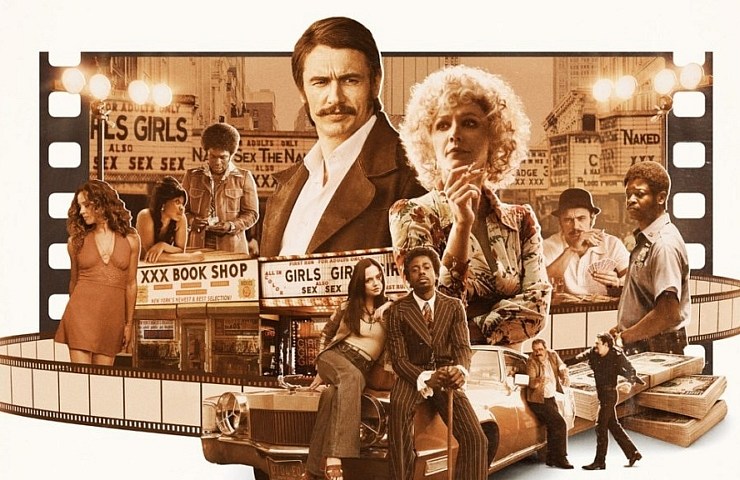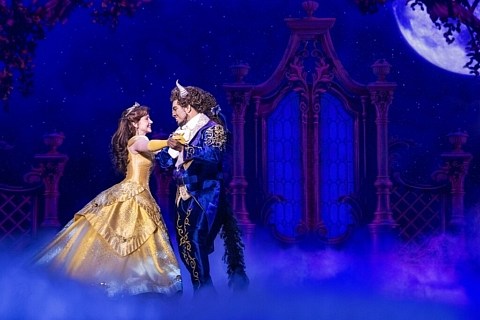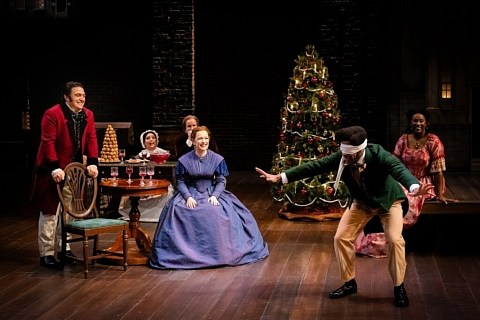On October 28, 2019, the last episode of “The Deuce” aired on HBO. The drama series started in 2017 and portrayed life and culture around Times Square in New York in the 70s and early 80s, when the area was a notorious red light district. This is a crass contrast to today’s experience where hordes of tourists are swarmed by Disney figures trying to make a quick buck posing for photos. The series shows over three seasons how sex workers were driven off the streets into “massage” parlors and erotica studios.
Putting the focus on the “dirty” sex work right before the AIDS epidemic, series creators David Simon and George Pelecanos (The Wire, Treme) went new ways on and off the camera. Naturally, this show is full of nudity, sex, and some occasional violence. While that is not surprising for a drama set in the porn industry, “The Deuce” is credited for being the first show to employ an “intimacy coordinator” on set, a position whose sole responsibility it is to make sure that no actor is uncomfortable, or even worse, feels pressured to shoot scenes they’d prefer not to do. This practice quickly became an industry standard in the times of #metoo.
In 2018, in the middle of production, another problem occurred: the star of the show, James Franco, who plays both twin brothers Vincent and Frankie Martino, was accused of sexual misconduct, and protesters demanded him being fired from the show. However Franco, who is also an executive producer, stayed and ended up directing an episode that delivered one of the strongest messages against the exploitation of female sex workers, delivered by a character based on the real feminism activist Andrea Dworkin, schooling a former prostitute-turned-porn-director played by Maggie Gyllenhaal. This doesn’t mean an absolution for Franco, but it’s evident that he is more sensitive to women’s issues today; something this show might have helped him with.
Franco, Gyllenhaal, and the rest of the excellent cast portraying the colorful characters, are the backbone of the series. Like all of Simon’s shows, “The Deuce” is centered on protagonists that are often based in parts on actual people and their experiences. It is notable that the filmmakers never rely on sex to advance the story, which would have been easy in a series about the porn industry and sex work in general.
The people in this show feel real, and the filmmakers deeply care for them. When the gentrification of Times Square becomes a more prominent sub plot in the third and final season, the show delivers just another important statement of how people can’t afford to live in their own city anymore. It also addresses who really benefits from cleaning up the inner city neighborhood – an issue that is still painfully topical today, more than thirty years after the events of the series took place.
The grade of realism is astonishing, which is reinforced by the outstanding set and production design. The grimy New York of the past reemerges from the dead, and if you liked how Gotham City looked like in “Joker,” watching the third season of “The Deuce” makes it clear that the look was based on New York City in the early 80s. But it’s not only the city itself, the nostalgia lives in the outfits, pimpmobiles, cars, and technology of an era that feels antiquated in times of Tesla’s, smartphones and internet porn.
Back then, pornography together with homosexuality was on the brink of illegality, and had a highly negative image paired with social stigma, which is something “The Deuce” doesn’t hold back on. Today pornography is a commonplace occurance: streaming sites are only a few clicks away and available on every smartphone. Even a sex tape is more often the start of a career, rather than its death sentence; just ask the Kardashians. However, there is still a continuing discussion of sexual freedom and autonomy in this country, like the protest against gay marriage illustrates. “The Deuce” is a show that cannot solve this issue, but it plays a vital part in educating and changing society as well as the film and TV industry, all while being an entertaining look into a past long gone. That’s more than most shows can offer.





Recent Comments